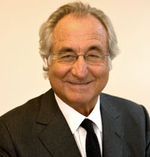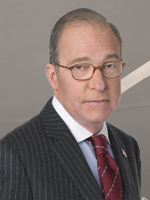Think of this as Volume 12, Number 8 of A-Clue.com, the online newsletter I've written since 1997. Enjoy.

As bad as financial reporters, analysts and experts were when the market was going up they are worse when it's going down.
Let's start with what we know.
Money is a store of value but trillions of dollars have disappeared. The stuff it was valuing is still there. Your house is still there, your stocks, it's all there. Most of it. But with prices having collapsed there is less money available to buy it.
For proof look at the value of the dollar and the price of money. The dollar is high, having gained a lot against the Euro and Pound since this mess started. Interest rates are near zero. There's just no liquidity. There's no money out there with which to buy.
Governments decide how much money there is. That's their job. They can buy loans to take money out of the system. They can sell loans to put money in. They can create money by government fiat, just as corporations create money in good times by declaring stock. There are institutions like the Federal Reserve in place so our government can take a long view.
We need more money. The government controls where it goes, because it creates it, on our behalf, and we're all shareholders in our national interest.
The $700 billion TARP fund was new money invented by the government to restore health to the banking system. The Bush people gave it to bankers who used it to try and save themselves. The Obama people have gotten nearly $800 billion in spending out for the next few years, demand we know will be there, they're trying to direct the $350 billion remaining in the TARP fund to where it will do some good, and they are committed to creating as much money as necessary to unstick the markets.
CNBC's response to all this? Panic. Pure, unadulterated panic. They were fine with the Bush people creating money and handing it to their sources last year. Now that some might be going to (gasp) homeowners, Rick Santelli goes all Howard Beale on us (above). Now that the Treasury Secretary has decided to treat big banks like small banks, and be willing to wipe out their equity if they're insolvent, all bank values are being hammered down to zero.
No one is helped by "experts" like Suze Orman telling us that we all have to become church mice, make certain we get 8 months' salary into cash, and horde the rest. No one is helped by Jim Cramer, the Pied Piper of the boom, now telling everyone to get out of the market for 5 years.
There are buying opportunities in this market. While the next move may be down, over a few years you will look like a genius if you buy good companies now that make stuff and hold on to them. (If I told you what the good ones are and I were on TV my advice in the last sentence would instantly become wrong.)
(To the left, one of Rick Santelli's "heroes," the former chair of the NASDAQ, until his sons turned him in.)
Economies are complex, and everyone in an economy is different. Any advice which is the same for everyone is bad advice. Whether we're talking about corporate finance advice, investment finance advice, or personal finance advice, telling everyone the same thing is going to get everyone in trouble. Following the herd gets you trampled.
When their heads are on straight, when they're not letting themselves be panicked as Cramer is panicked, people like Santelli and Orman know this.
What changed? Two things changed, and they are both important:
Bernie Madoff was not an aberration. Wherever you turn around, you find people who, since there were no rules, decided they could get away with theft. This is the natural result of ideologues (like CNBC's Larry Kudlow) telling us for decades that the market didn't need rules. With no police crime just happens. These morons turned Wall Street into the South Bronx. What we need to do, over time, is institute a "dirty windows" policy of financial regulation, where you get nicked for small stuff so you don't go do the big stuff. There is no difference between subway car taggers and investment bank scammers but the number of zeroes in the cost of the damage they do.- There is no longer such a thing as too big to fail. This is the Obama Administration's innovation. People across the political spectrum are coming to realize that there is nothing sacred about Citibank or Bank of America, nor should there be. If they go broke they should be treated just like Haven Trust of Duluth, Georgia. You wipe out the shareholders, you sell on the strong assets, and the idiots who did it lose their jobs.
This includes companies that are partly financial and partly not, like General Electric, which coincidentally all the panickers work for. Jack Welch (left) built GE into a "financial supermarket" and things were going so well that his successor, Jeff Immelt, could not unwind the position. So like all the other sharpies, they got caught out. Now the stock is below $10, and if the panic goes on they might well go under.
What happens then to the 401(k) of Rick Santelli or Brian Williams? Nothing good. But that's their look out. Could GE survive if the government bought a big piece of it? Maybe, but that would hurt Santelli, Williams and (let's face it) Orman as well.
So they panic the rest of us.
What's the difference between putting billions into the vaults of JP Morgan Chase and helping prevent some homeowner caught in the bubble from losing a home they're paid-up on, Mr. Santelli? Especially when, in the case of the home loan, the pain goes to both the bank and the government, and the result is a security that truly deserves a AAA rating because the payments are affordable?
Sheesh.
Fact is the Obama people have it right. (Right, one of the chief members of that team, Paul Volcker.) Banks we depend upon to manage the financial system should not be allowed to play roulette with the customers' money. Investment banking and commercial banking need to be separate again, with the latter more tightly regulated than the former, but the former still transparent. All investors should have visibility into all opportunities, and know what all big players are up to, lest they be squashed.
We will create new money, which this government will take better care of. We will spend until the economy gets going on its own, and then we're going to pull in the punch bowl, pretty much permanently. Every nation is going to have to become part of a new world financial system, regulated for the sake of transparency and fiduciary responsibility, or they cannot be allowed to play.
Most important, everything is going to be all right. Opportunities will come back. Most loans are still good. Stock prices will fluctuate, which means they can also go up.
Turn off CNBC. Turn off anyone who gives everyone the same advice. Learn that lesson now, keep it to heart the rest of your life, and these hard times will have proven worthwhile.















